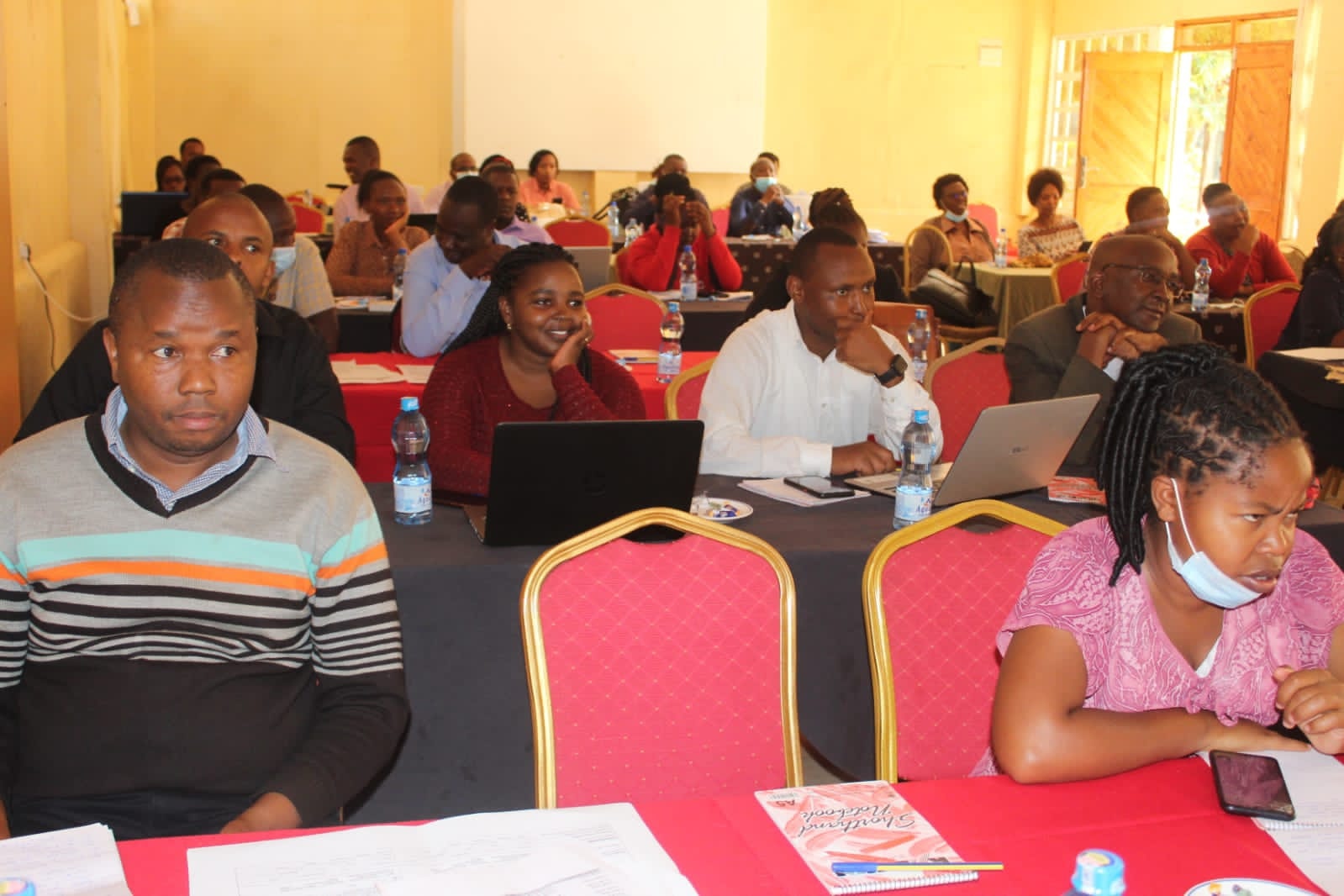Public Service Vehicle (PSV) operators in Nyeri have lamented at the steady rise in pump prices which have seen fuel costs hit an all-time high in less than six months.
On Tuesday last week Energy and Petroleum Regulatory Authority (EPRA) announced new pump prices which saw both petrol and diesel increased by Sh 9.
The hike which also saw the price of kerosene jump to Sh 127 per liter means a liter of super petrol and diesel is now retailing at Sh 159.12 and Sh 140 respectively, the highest rise in Kenya’s history.
The skyrocketing prices have already exerted inflationary pressure on the cost of living with manufacturers, transporters and service providers expected to pass the extra cost to consumers.
The situation which comes against the backdrop of rising food prices has now forced PSV operators to increase fares to factor in the new adjustments.
And while commuters complain about the new fares, operators argue the move is a necessary evil if the sector is to remain afloat.
“Life has become unbearable and we are only holding on since we don’t have alternative sources of income. Things are so bad such that to earn enough money to feed your family is becoming a daily nightmare. We are all suffering just like everybody else,” says Samuel Gitonga, an employee with 2NKSacco.
Gitonga explains that the recent fuel cost hike has obliged them to adjust their fares to ensure their vehicles, majority of which were acquired through bank loans, remain in business.
The Sacco which is one of the largest plying the Mount Kenya region is now charging Sh 450 for a one-way trip to the city.
Peter Mwangi, a driver with 4NTE Sacco also says they have been forced to adjust their charges to the city with the same margin even as they complain of dwindling fortunes in the once lucrative sector.
“We are not exploiting Kenyans by adjusting fares but rather trying to ensure that we are able to meet the punitive operation costs brought about by increased fuel prices. It’s not our fault that fares are increasing. The blame lies with the government,” claims Mwangi.
Mwangi also notes that some operators are now unable to service their loans, which have seen some of them lose their vehicles to auctioneers.
“Some of us acquired our vehicles through loans sourced from banks and it is now becoming a near impossibility servicing them. In fact things have become so tough to the extent that a number of our colleagues have opted out to try luck in other business ventures,” he explains.
Joseph Murimi a driver at Nyena Sacco notes that owing to the fact that Kenyans are already facing hard economic times they haven’t increased their fares to avoid burdening the common mwananchi.
“We have not increased fares on our buses since Kenyans have reached their financial threshold catapulted by the high rate of inflation in the country. Consequently, our prices will remain unchanged in an attempt to ensure that we retain our customers and if possible, attract others,” he said.
Mercy Wanjiru who travels to Nairobi on a weekly basis to buy goods for her stall in Nyeri town says she is feeling the weight of the fuel prices coming hot on heels of the Covid-19 crisis.
“I travel to Nairobi every Wednesday to get stock for my business. With the recent increase in bus fares I am compelled to pay an extra Sh. 50 which caters for my lunch on a normal business day. This is hurting us badly especially at a time we were yet to recover from the aftermath of the Covid 19 pandemic” she says.
The Government has hinted at the possibility of scrapping its fuel subsidy programme that is meant to cushion Oil Marketing Companies (OMC) from incurring heavy costs in the distribution and sale of the commodity owing to its unsustainability.
Without the fuel subsidy, a litre of petrol today is expected to retail at Sh 188 by July 14.
Kenya could be staring at the possibility of endless hikes in fuel, food and cooking oil prices following the ongoing war in Eastern Europe between Russia and Ukraine.
Both countries are leading producers of natural gas, fossil fuel, wheat, and sunflower oil whose production has been heavily impacted by the ongoing conflict.
Statistics show food costs rose 8.89 per cent in January 2022 despite the decline in the overall rate of inflation, according to the Kenya National Bureau of Statistics (KNBS) monthly Consumer Price Index (CPI).
The KNBS review showed that the CPI increased by 0.31 per cent from an index of 118.274 in December 2021 to 118.642 in January this year.
Similarly, the month-to-month Food and Non-Alcoholic Beverages Index rose by 1.07 per cent between December 2021 and January 2022.
